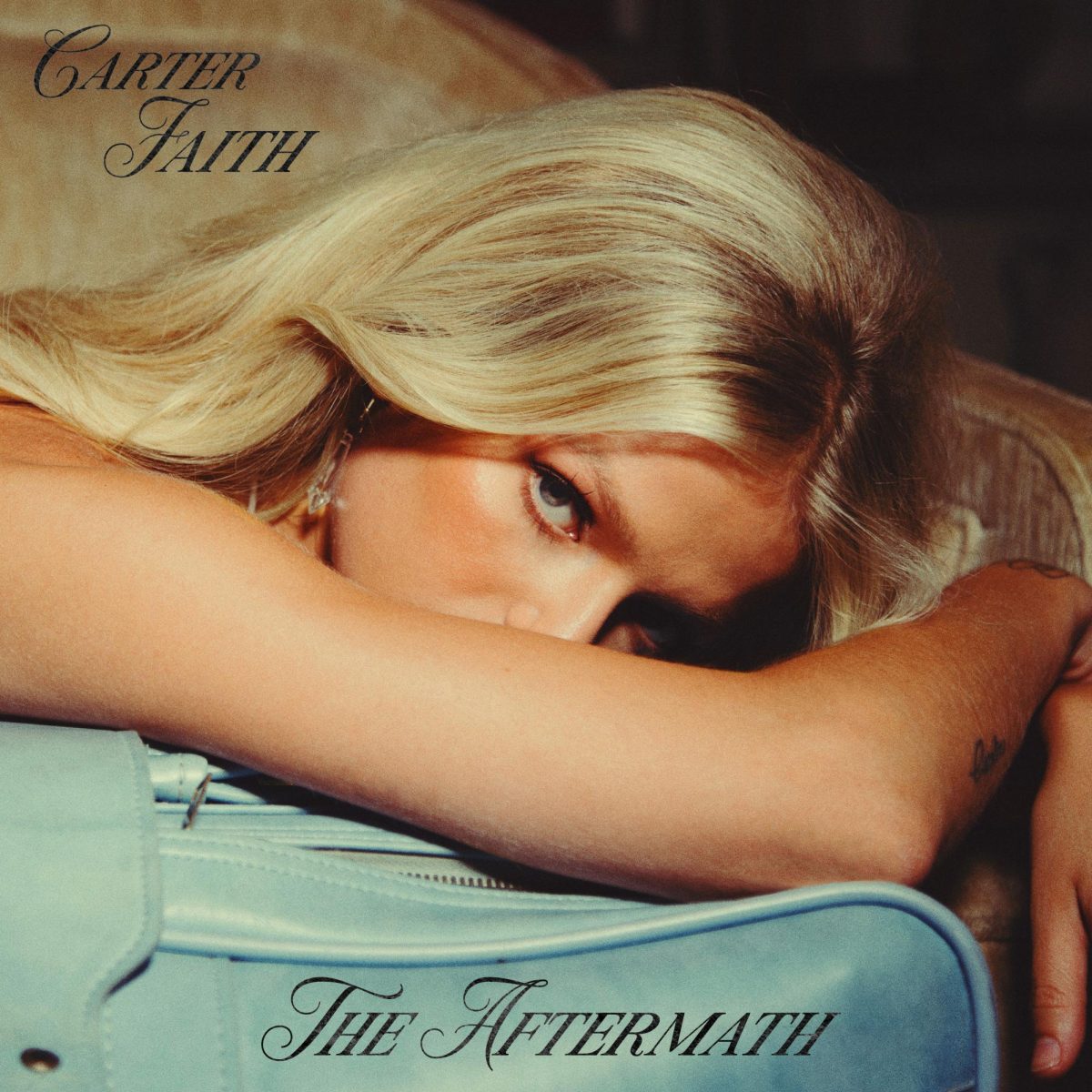Carter Faith is Gen-Z’s female country powerhouse. Whether you grew up on a dirt road, were raised by Tumblr or Pinterest or “enjoy getting high on a pipe dream,” Faith is the artist for you.
This cowgirl incorporates her pop music idol, Lana Del Rey, and songwriting and melodic devices into her own country songs. Faith’s origins in North Carolina and passion for all eras of country music helped her deliver her innovative hits like “Greener Pasture” and “The Devil’s Still Down in Georgia.” Faith doesn’t just make country music; she makes it for the here and now.
Her newly released EP, “The Aftermath,” navigates listeners through her recent breakup, journey of self-acceptance, growing up and establishing credibility in the music industry. The project is a form of recognizing and accepting past traumas and being able to heal from them — an experience universal to all young adults.
“I don’t like songs that say love is beautiful because love is weird,” Faith said.
This sentiment weaves throughout the entire project, evident in lyrics like, ‘The TV don’t show the mess love can make’ from the titular song “The Aftermath.”

Throughout “Strong Stuff,” which goes against the ‘good girl’ personification of female country singers, Faith challenges current notions of what young women should and can sing about.
“He’s drinking black label, and I’m wearing black lace / He’s walking my way, and I’m shivering,” Faith sings in the song.
Faith writes about what she wants and how she wants it. Occasionally, she’ll let profanity slip out to do it.
“[F— you] is sometimes the best way to describe how I’m feeling,” Faith said.
Faith is candid and unafraid throughout “The Aftermath.”
“I put personal information to let the person I wrote about know that I talked about him,” Faith said.
This is a sentiment that has been echoed numerous times by female country artists in the past — from 2009, when twenty-year-old Taylor Swift was promoting Speak Now, to a decade later with Miranda Lambert. These artists have paved the way for Faith and other rising country stars to enter spaces that icons like Swift once inhabited.
While it’s easy for Faith to leave hints for her ex by mentioning Tom Petty’s “Wildflower” in “Blue Bird,” she admits she might not be as straightforward in real life.
“Maybe in real life, I’m less honest,” Faith said.
For the listener, this means we get the truest version of Faith’s heart, as she often remains a “mysterious character online.” Her willingness to be vulnerable through music serves as the driving force for Faith’s next project, which she is already working on.
More than ‘cute country love songs,’ Faith highlights her struggles with self-love in “Late Bloomer.” “Waiting for your hips to come in / Not as pretty as your best friend” is more than a truthful omission, but a brave one for Faith to make.
Faith displays an internal conflict with the young girl who’s from North Carolina and the woman she is in Nashville. “Cause someday it’s all eyes on you when you walk in the room / One day I swear they’ll say ‘remember when we knew her,’” Faith sings.
Faith establishes the normalcy of feeling both in tune with your inner child and the ambitions of a young adult. She walks that fine line throughout “The Aftermath,” proving that you can embody both. Authenticity doesn’t have a genre and Faith’s music resonates with diverse listeners because of it. Her stories are not exclusive to country but inclusive of young people’s experiences. In return, her young listeners encourage her to write honestly.
“You guys are me,” Faith said.
Her music is meant for people like me, who don’t know what to do in their twenties but are doing their best anyway. It also resonates with heartbroken people living in “The Aftermath.” Or, as Carter Faith would say, it’s for people feeling “Alright.”






